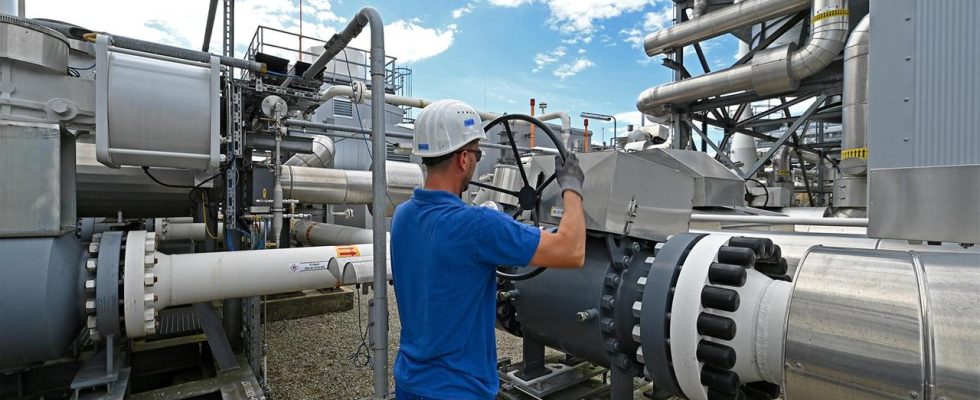Austria continues to source a large portion of its natural gas from Russia. Experts from the responsible control authority warn against excessive dependence. There is also another risk.
Austria still gets a large part of the gas it needs nationwide from Russia. According to data from the Austrian energy regulatory authority E-Control, the share of Russian natural gas in imports was an average of 60 percent in the second year of the war of aggression against Ukraine. In September it was even 80 percent – about the same as at the start of the war, the regulatory authority said.
The former E-Control boss Walter Boltz and the ex-head of the energy company OMV, Gerhard Roiss, warn that Austria is inadequately prepared for a failure in deliveries from Russia. Austria has stored enough reserves for such an emergency. But if this were to happen, gas would still become more expensive. Because the pipeline capacities on the alternative route from Germany to Austria are limited, said Boltz, who was hired with Roiss as an advisor to the Ministry of Energy in Vienna.
Cables run through a war zone
There is also another problem: Russian gas flows through Ukraine to Austria. “The line is still in a war zone,” said the head of the gas department at E-Control, Carola Millgramm, to the dpa news agency.
Actually, Ukraine no longer wants to forward gas from the Russian gas company Gazprom through its pipelines to Europe from 2025. The Ukrainian Deputy Prime Minister Olha Stefanischyna has assured that the country will continue to transport gas to Austria, even if Kiev wants to let the gas transit contract with the Russian Gazprom group expire, reports the dpa.
When will additional pipeline come from Germany?
The E-Control experts criticize the fact that the Austrian pipeline operator Gas Connect Austria (GCA) is not actively promoting the expansion of a pipeline for gas from Germany. “At the moment the quantities are still coming from Russia,” argued GCA boss Stefan Wagenhofer in a radio interview.
Gas department head Millgramm also emphasized that the GCA is obliged to implement the pipeline expansion that has already been approved. In contrast to Boltz, she considers the transport capacities on alternative routes from Italy or Germany to be sufficient. Austria has not yet given up on Russian gas because the current supply contract is still in force until 2040.
The state-owned Austrian company did not want to answer the dpa whether OMV, as a contractual partner of Gazprom, had ever tried to negotiate an exit.
Criticism of regional ones energy suppliers
However, OMV has secured alternative quantities of gas in the event of a delivery stop. Most regional energy suppliers, on the other hand, are still relying too heavily on Russia, said Boltz: “I have the impression that the companies are burying their heads in the sand and hoping that things won’t get that bad.”
Other EU countries also continue to purchase gas from Russia. However, not via pipelines in gaseous form, but as liquefied LNG, which is usually transported via special tankers.
According to the non-governmental organization Global Witness, the amount of LNG imported by EU countries increased significantly in the first seven months of 2023. The EU Commission has set itself the goal of ensuring that the community no longer purchases any Russian gas by 2027, neither via LNG tankers nor via pipeline. Until then, many countries are still contractually bound to Russia.

